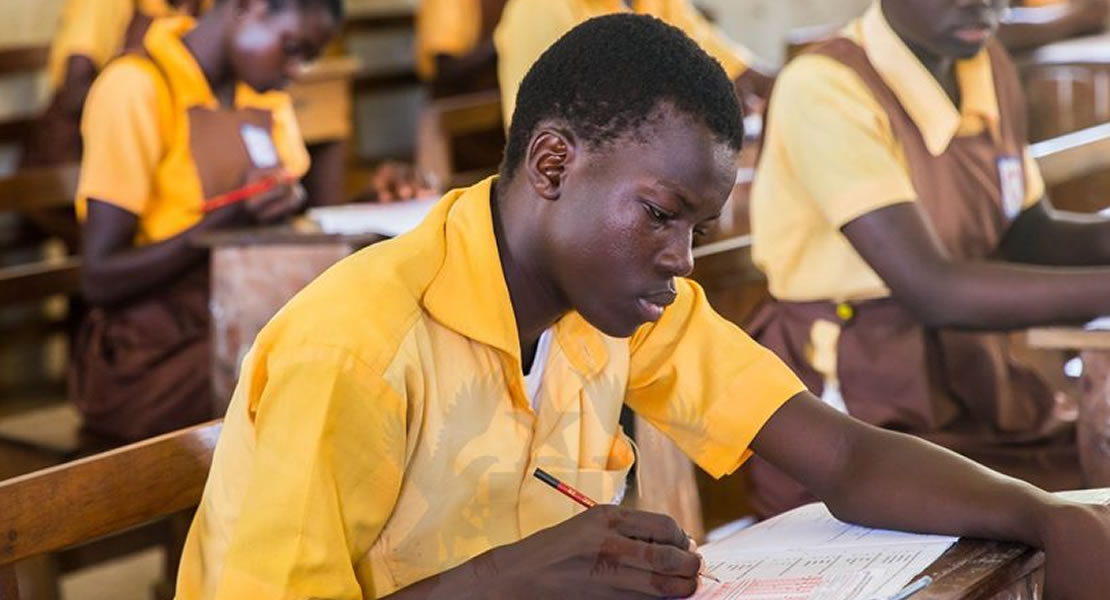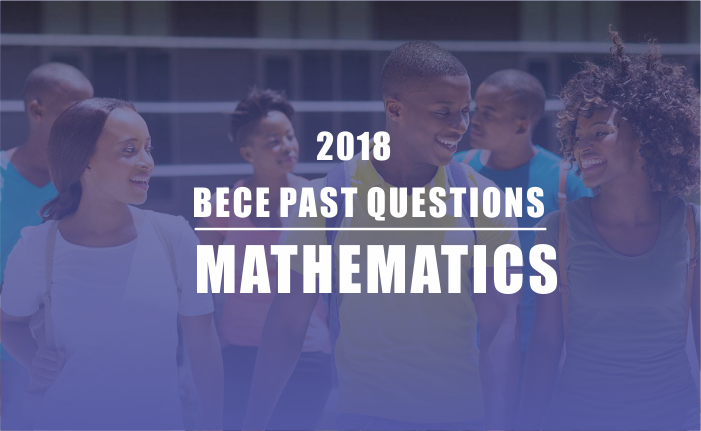Description
BECE 2018 Mathematics Questions and Answers
The Basic school Certificate Examination, more commonly referred to as the BECE, serves as the crowning achievement of the junior secondary school education for students in West African countries. This examination is of great significance. When it comes to evaluating the overall performance of pupils, mathematics, which is widely regarded as a core subject, is a crucial component. Students who are preparing for future tests will continue to find the problems and answers for the BECE 2018 Mathematics test to be an extremely helpful resource.
The students are provided with an understanding of the test style as well as the typical question patterns through the use of these questions and answers. This page’s objective is to provide students with aid in interpreting the BECE 2018 Mathematics questions and answers, as well as information on how to make the most of these resources in order to better their preparation for the examination. In addition, this page will provide students with direction on how to make the most of these resources.
Understanding the BECE 2018 Mathematics Exam Structure
The BECE Mathematics exam is structured to test a wide range of mathematical concepts, from basic arithmetic to more complex algebraic expressions. In 2018, the exam followed a format of multiple-choice questions and theory-based problem-solving questions. Multiple-choice questions assess students’ quick thinking and basic mathematical knowledge, while the theory questions require deeper understanding and the application of principles to solve problems.
The paper is typically divided into two main sections:
- Section A (Objective Questions): Consists of multiple-choice questions that cover a broad range of topics, including arithmetic, algebra, geometry, and data handling.
- Section B (Essay/Problem-Solving Questions): Comprises theory-based questions that require detailed solutions, explanations, and in some cases, step-by-step calculations.

Common Topics in BECE 2018 Mathematics
The BECE 2018 Mathematics exam included several core topics that are commonly repeated in the BECE exams. These topics are important for students to focus on as they are likely to appear in future examinations.
- Number and Numeration: This includes questions on basic arithmetic, integers, fractions, percentages, and ratios. Students need to master addition, subtraction, multiplication, and division, as well as conversions between fractions, decimals, and percentages.
- Algebraic Expressions: Algebra questions often involve simplifying expressions, solving equations, and understanding variables. The BECE 2018 exam required students to work with basic algebraic concepts, making it essential for students to practice solving linear equations and interpreting word problems.
- Geometry and Measurement: Questions on shapes, area, perimeter, volume, and angles are included under this topic. BECE 2018 questions tested students on calculating areas of different geometric shapes and solving problems involving angles and symmetry.
- Statistics and Probability: Students were required to interpret data, work with averages, and calculate probabilities. Questions often involve reading charts and graphs, which are essential skills for understanding data representation.
- Quantitative Aptitude: This section may include real-life problems where students have to apply mathematical reasoning to find solutions. Common question types involve currency conversions, speed and time calculations, and percentages in practical situations.
Sample BECE 2018 Mathematics Questions and Answers
Here, we provide sample questions and answers that reflect the style and content of the BECE 2018 Mathematics paper. Practicing these sample questions can be a helpful way for students to familiarize themselves with the exam’s format and improve their problem-solving skills.
Sample Question 1
Question: Simplify 3x+2x−53x + 2x – 5 when x=3x = 3.
Solution: Substitute x=3x = 3 into the equation to get 3(3)+2(3)−53(3) + 2(3) – 5, which simplifies to 9+6−5=109 + 6 – 5 = 10. The answer is 10.
Sample Question 2
Question: Calculate the area of a rectangle with length 8 cm and width 5 cm.
Solution: The area of a rectangle is given by Area=Length×Width \text{Area} = \text{Length} \times \text{Width}. Substituting the values, Area=8×5=40 cm2 \text{Area} = 8 \times 5 = 40 \, \text{cm}^2.
Sample Question 3
Question: A bag contains 4 red balls, 5 green balls, and 6 blue balls. What is the probability of picking a green ball?
Solution: The total number of balls is 4+5+6=154 + 5 + 6 = 15. The probability of picking a green ball is 515=13 \frac{5}{15} = \frac{1}{3}.

Tips for Using BECE 2018 Mathematics Questions and Answers for Exam Preparation
- Practice Regularly: Consistent practice with past questions helps students gain familiarity with question types, boosting confidence. Going over 2018 questions enables students to identify common question patterns.
- Understand the Solutions: Instead of merely memorizing answers, students should focus on understanding the solutions. This helps them apply the same methods to different problems and improve their problem-solving skills.
- Time Management: Working with a timer when practicing can help students build speed and learn to manage their time effectively during the actual examination.
- Identify Weak Areas: By practicing BECE 2018 Mathematics questions, students can pinpoint their weaknesses. They should focus on these areas, seek additional resources if needed, and aim to improve before the examination.
- Seek Help and Clarification: If certain questions or concepts are challenging, students should not hesitate to seek help from teachers or classmates. Group discussions can also be helpful in gaining a deeper understanding of complex problems.

Conclusion
BECE 2018 Mathematics questions and answers are a fantastic resource for students studying for their exams. Using these problems, students can improve their mathematical abilities and boost their confidence by practicing on a regular basis, gaining a grasp of the solutions, and concentrating on areas in which they are lacking. Students have the potential to earn a high mark on their BECE examinations if they consistently practice and dedicate themselves to the subject. Mathematics is a subject that requires perseverance and logical thinking.





Reviews
There are no reviews yet.